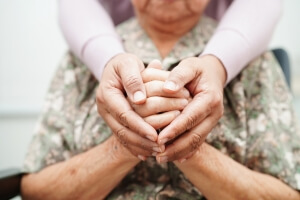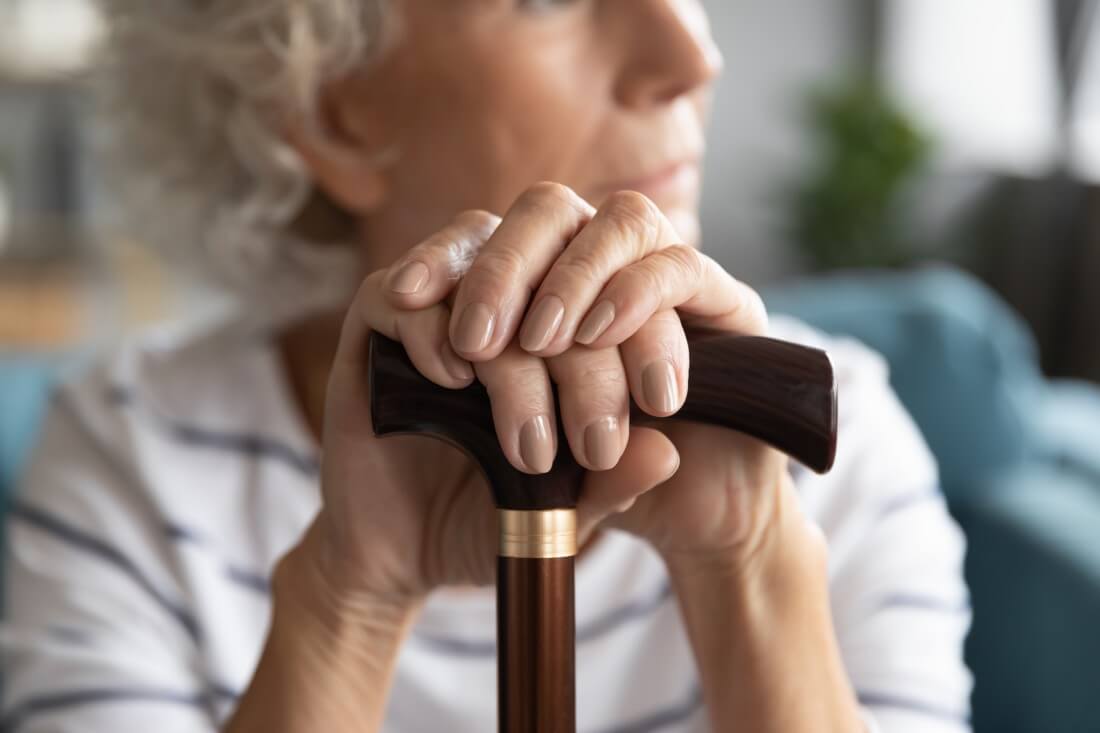
Assisted Living Safety: How Assisted Living Protects Your Loved Ones
Many wonder about assisted living safety and if it truly protects our loved ones. Making the decision to seek residential care for a family member can be difficult. Many older adults wish to continue living in familiar surroundings, but aging in place at home isn’t always the safest option. Adults over 65 today face complex health, safety, and well-being challenges that make finding an assisted living community the best choice in numerous ways.
Not everyone over 65 requires the level of care that an assisted living facility provides. However, these care facilities may be an ideal choice for anyone with multiple chronic health conditions, Alzheimer’s disease or another form of dementia, or trouble performing daily personal and household tasks. Let’s take a look at the safety measures and benefits of residential senior living.
Risks of Staying at Home for Older Adults
Falls, wandering behaviors, and trouble with activities of daily living are the top risks to older adults’ safety and security. If you’re unsure whether your loved one is ready for this transition, read more about the signs it’s time to consider senior living.

Falls
Falls are one of the top healthcare concerns for older adults, responsible for over 800,000 hospitalizations per year in the U.S. alone. If someone lives alone when they fall, they may not be in a position to call for help. The more quickly a person can get the attention they need after a fall—including evaluation, treatment, and prevention strategies—the more likely a positive outcome will be.
Wandering Behaviors
People living with dementia can pose a security risk to themselves in the form of wandering behaviors. According to the Alzheimer’s Association, 6 in 10 people with dementia will wander at least once. Without proper precautions, older adults who wander could get lost, trip and fall, become dehydrated, or suffer from exposure to the elements, among other dangerous conditions.
Activities of Daily Living
Daily personal care tasks like bathing, dressing, toileting, and even cleaning up around the house are major aspects of our everyday lives that we often take for granted. But if a person has trouble performing these tasks on their own, it can have compound effects on both their physical and mental health.
Older adults may have difficulty admitting they need help with these tasks, but if you notice changes in their personal appearance, hygiene, or home upkeep, it may be time to think about finding a healthier environment.
Assisted Living Safety: What Do Assisted Living Services Provide?
Assisted living facilities can help seniors enjoy their retirement while receiving all the support they need. The right senior community for your loved one will depend on the unique care level needed, but overall, you can expect numerous benefits for their physical safety and security.
5 Safety & Security Benefits of Assisted Living Communities
They’re Designed with Older Adults in Mind
Houses aren’t usually designed with accessibility in mind, which is the cause behind some of the biggest hazards of home. Assisted living facilities, on the other hand, are built around making sure that residents can easily explore and enjoy each part of their surroundings.
From wide hallways and doors to single-floor layouts, grip bars in bathrooms to thoughtful lighting in walkways, senior living communities have mobility and resident safety baked into every design choice. These elements all protect against falls, improve access to the building’s amenities, and promote continued independence for residents.

They Provide Improved Access to Medical Care
Assisted living facilities often have skilled medical staff on-site or on-call for any emergencies that may arise. And because caregivers are always present, they will quickly respond to any injuries, illnesses, or behavior changes that may occur over time. Many senior communities also offer:
- On-site pharmacies and/or wellness clinics
- Visiting specialists such as speech therapists, physical therapists, and more
- Medication management services
- Transportation services to doctor appointments and more
- Emergency call systems in bedrooms and bathrooms
Memory Care Communities Protect Those Living with Dementia
People living with dementia are safest when they reside in a specialized memory care community tailored to their needs. All assisted living communities should have safety and security measures in place to protect residents. Memory care communities in particular will have features like keypad entry, secured doors, and private or gated outdoor areas.
Hassle-Free Living Means Less Risk
According to the National Safety Council, preventable injuries and deaths in the home have rapidly increased since 1999. In 2021 alone, the U.S. medical system saw 35.9 million home-based injuries, more than car accidents, public injuries, and workplace injuries combined.
The vast majority of these accidents involved poisoning and falls. Both of these categories have implications for older adults, as they are at a higher risk of taking the incorrect dosage of medication or falling while performing everyday household tasks.
Cooking, cleaning, yard work, and other tasks can cause flare-ups of chronic conditions like arthritis, as well as posing injury risks. Senior care communities eliminate many of these risks simply by having caregivers and staff who take on chores, housekeeping, and assistance with daily tasks and medication reminders.
Social Environments Support Assisted Living Residents, Too
Having a social network is crucial for seniors. Loneliness is strongly linked to depression, cognitive decline, and other health issues. Having a social network not only helps ward off these issues, but provides older adults with a security net for reporting changes in their needs, concerns about their safety, and more.
It’s important for people of all ages to have a support system they can rely on to voice their concerns and work through issues. Assisted living communities provide that system, and ensure that if anything unusual happens, there will always be someone there to check in.
Final Thoughts on Assisted Living Safety
Assisted living is often a solution to preserve a person’s independence and dignity while still providing the level of support and care they need to thrive. These residences are built with seniors’ mobility, healthcare, and ultimate resident safety in mind every step of the way. Each day, you can wake up knowing that your loved one is getting the most out of their retirement with everything they need.
Assisted living isn’t a one-size-fits-all prospect. Each community has its own amenities, features, care packages, events, and more. To find the right option for your loved one, a senior care advisor is your top resource, helping you navigate the senior care landscape with expert local knowledge. Get advice and one-on-one guidance from your local CarePatrol today at no cost to you or your family!
CarePatrol: Free Senior Care Placement Resources Nationwide!
At CarePatrol, we connect people with the best long-term care options for them, including independent living, assisted living, memory care, and nursing homes (skilled nursing facilities). Our senior care advisors are your allies, providing you with personalized recommendations, resources, and transition support every step of the way. To find your perfect senior care solution at no cost to you, get in touch with your local senior care advisor today!